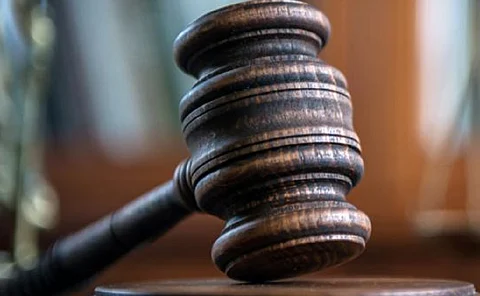

The Amicus Curiae informed the Supreme Court (SC) November 18, 2024 about discrepancies in farm fire data collected through stationary satellites compared to polar orbiting satellites such as those used by the United States’ National Aeronautics and Space Administration (NASA).
The Indian Space Research Organisation (ISRO) relies on data from NASA satellites, which pass over the National Capital Region (NCR) at approximately 10.30 am and 1.30 pm daily. This data is limited to these timeframes.
The Amicus, citing information from Hiren Jethva, a senior research scientist at NASA’s Goddard Space Flight Center, pointed out that the South Korean stationary satellite GEO-KOMSAT 2A captured farm fires at 4.20 pm.
The SC directed the central government and the Commission for Air Quality Management (CAQM) in NCR and Adjoining Areas to promptly arrange for data acquisition, either from the South Korean stationary satellite or any other stationary satellites, to ensure that farm fire data throughout the day is made available to states for action.
The apex court also instructed all state governments in the NCR to enforce Stage IV of the Graded Response Action Plan (GRAP) with immediate effect. State governments were directed to form teams to monitor the implementation of actions under Stage IV. Both the central government and the NCR state governments were ordered to decide on actions outlined in clauses 5, 6, 7, and 8 of Stage IV, placing the decisions on record before the next hearing on November 22, 2024.
Stage III of the GRAP is triggered when Delhi’s Air Quality Index (AQI) ranges between 401 and 450, meaning the ‘severe’ category. Minutes from the Commission’s Sub-Committee meeting on November 13, 2024 indicate that the AQI crossed 401 on that date.
However, the Amicus Curiae informed the court that the AQI had already exceeded 400 on November 12, 2024. Instead of promptly implementing Stage III of the GRAP, the Commission delayed its enforcement until November 14, 2024, with a similar delay noted for Stage IV.
The CAQM seems to have waited for the AQI to improve, delaying the implementation of Stages III and IV of the GRAP, the apex court observed.
“In anticipation of the AQI crossing the threshold limit, it is the duty of CAQM to immediately implement Stages III and IV of the GRAP, as the case may be. The Commission cannot wait for the improvement of the AQI,” the bench of Justice Abhay S Oka and Augustine George Masih said.
The SC further directed the Delhi government and other NCR state governments to establish a grievance redressal mechanism, allowing citizens to report violations of restrictions under Stage IV of the GRAP. The court clarified that until further orders are issued, “the implementation of Stage IV of the GRAP will continue even if AQI drops below 450”.
All NCR state governments and the central government were told to file compliance affidavits by November 21, 2024. The petition was listed to review the implementation of the GRAP for NCR and adjoining areas, as published by the CAQM in September 2024.
The National Green Tribunal’s (NGT) central zone bench on November 18, 2024 directed the Chhattisgarh State Pollution Control Board and Chhattisgarh Environment Conservation Board to submit a report regarding the realisation and utilisation of environmental compensation in connection with illegal sand mining at the Balod Pod sand mine in Balod district.
The NGT ordered that the action-taken report or reply be filed within three weeks. The next hearing is scheduled for January 20, 2025.
A joint committee was tasked with investigating the matter, and its members visited the site and submitted their findings. The report stated that the mining department conducted an inspection and imposed environmental compensation for the violations identified.
The NGT, November 18, 2024 directed the Rajasthan State Pollution Control Board to take appropriate action against environmental violations and submit an action-taken report on the discharge of untreated water into the Kothari river.
The application raised the issue of untreated water discharge into the river, which degrades its water quality, as well as the dumping of solid waste, chemicals, and waste medicines along the riverbanks in violation of environmental regulations. A report from the State Pollution Control Board identified several violations.
In light of the report, the following parties were added as necessary respondents: Porwal Hospital Pvt Ltd, Bhilwara, Rajasthan and the municipal commissioner of Bhilwara, Rajasthan. The respondents have been directed to file their replies within four weeks.